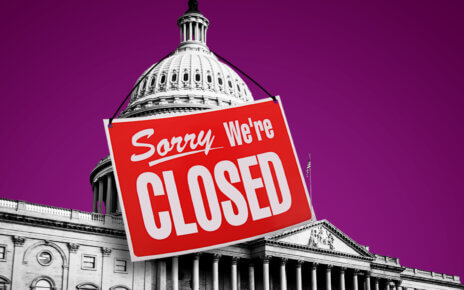 Here students debate political issues of the week. Side 1 students make their initial argument followed by side 2 in which they respond to their opponent.
Here students debate political issues of the week. Side 1 students make their initial argument followed by side 2 in which they respond to their opponent.
Side 1: In Favor of Occupy Wall Street: Our Mark on History
A people powered movement began in Liberty Square in Manhattan’s financial district on September 17. Today, it has expanded to over 100 cities in the United States and 1,500 worldwide. It is a peaceful movement whose main goal is to expose how the richest one percent of people in America is writing the rules of an unfair global economy.
That same one percent of Americans currently hold 42 percent of our country’s wealth, while there are 46 million people in America currently living in poverty, according to CNN Money.
Occupy Wall Street sees this inequality in our country, and they are standing up against greed and corruption in corporate America. Taxes on people making over one million dollars have gone down from 91 percent during the 1950s to a historically low 28 percent in 2010, according to the U.S. Census. The fewer taxes the rich pay, the less revenue that goes towards the government, which has now had to cut down on benefits for the poor and middle class. Seeing this social divide, protesters are stepping up and calling for equality for all.
Those participating in Occupy Wall Street are not hippies, and they are not bums. Many of them are college students struggling with the mountain of debt hanging over them.
They are students with little to no prospects of finding a well-paying job to pay just bare minimum loan payments. Many around the world fail to recognize the fact that this is a youth led movement aimed at moving a political system that seems inept at best to solve the growing problems of the 99 percent of Americans who have to pay taxes and get nothing in return for it. CNN interviewed an anonymous protestor. He said, “My grandparents participated in the civil rights movement, my parents participated in the protests against the Vietnam War, and it’s my time to stand up for what I believe in.” He is not alone.
According to politifact.com, 67 percent of Americans favor increases on taxes on the rich, while even 68 percent of millionaires would favor an increase on their own taxes, according to the Huffington Post.
So, why isn’t the government increasing taxes on millionaires? Republicans in Congress have signed pledges promising to never increase taxes on millionaires.
This pledge was created by a man named Grover Norquist, who is the head of Americans for Tax Reform (ATR), a conservative committee against tax increases. ATR spent three million dollars in 2010 against Democratic campaigns. 41 Senators and 238 members of the House of Representatives signed this pledge ensuring they would never vote for tax increases. This includes Republican Speaker of the House John Boehner and Republican Senate Minority Leader Mitch McConnell.
When the most powerful man in the House of Representatives signs a pledge for one man who is willing to give as much money as he wants to ensure Republicans are elected, this results in the breakdown of the democratic system. This then leads to an uprising of people in this country who are fed up with corrupt politicians and demand one simple thing that Americans have been battling for since the creation of this great nation: equality.
With unemployment at nine percent and a President who is trying to push through a jobs bill that will ensure at least two million Americans will be put back to work. Please support Occupy Wall Street. It is a peaceful movement who only asks for one thing from this country that has failed them so many times. They want opportunity, which is something all Americans deserve.
The movement will not end until corrupt politicians and greedy corporations are held accountable for the mess and destruction they have caused.
We are currently living in a society where 46 million Americans are poor and 14 million people are unemployed, according to the Census.
Side 2: Against Occupy Wall Street
The protests on Wall Street have been the focal point of political controversy for the past month. The Occupy Wall Street movement has breached state and international borders. The 99 percent seems to be growing larger by the day, and there are no signs of the grievances letting up. While the demonstrators are exercising their rights as American citizens to protest for their specific causes or goals, it is highly arguable that the movements have, or will accomplish anything that will change the American economic system.
As a group that is challenging the long embedded tradition of the American two-party political system, as well as the basis of the capitalistic, free market economy that embodies our country’s individualistic ideals, they are destined to fall by the wayside sooner or later. Also, the lack of specific goals and objectives from the OWS movement is distracting any real work from being carried out. The protestors are certainly fed up with corporate irresponsibility and lack of accountability, as they should be, but they are facing unavoidable barricades that will ensure the eventual return of the status quo.
When you examine a country with a stable history, such as the United States, one commonality that many of these countries share is a stable, two-party political system. This system typically does not leave room for any sizeable third-party to gain public support and attain significant representation in government. Based on past radical movements on the left and right, this leads me to believe that any third-party organizations like OWS or the Tea Party will eventually be crushed by the dominant parties that represent the majority of the public that share their general ideologies. For example, the Green Party can be seen as a more liberal wing of the Democratic Party, but the majority of Democratic voters are more moderate, keeping the Green Party relatively unimportant in American politics. Of course, this is not to say that the Tea Party or OWS are not important with the current political climate in the country. Simply, as time passes, they will become less significant as the main political parties regain their grasp on issues and voters.
The second factor up against the OWS movement is the lack of organization and goals. This, in my opinion, is a simple obstacle to overcome. After a month of protesting, there should be some sort of consensus as to what you’re actually demonstrating for. Currently, the protests happening worldwide appear to be outlets for frustration against corporate misconduct. It is quite understandable to be upset at the economic system right now, but if the movement truly wishes to make a difference they will have to seriously assess their goals and put their energy into productive efforts rather than flashy signs and the “human microphone.” Open forums consisting of hundreds (perhaps thousands) of people in Zuccotti Park are illogical and do not produce results that will better the economic condition of the 99 percent. The reason the United States doesn’t use open forums to formulate policy is because we’ve found it more effective to elect officials, but maybe the protestors are on to something. As bad as the political process looks right now, this movement must utilize it to see real effective policies passed that will serve their interests. This is an opportunity that may increase trust in our institutions, rather than demonize them with no real solutions.
The stable political system that has been the basis for American politics threatens the success of any radical organizations seeking to change the fundamental institutions of our government. Rather than wasting time chastising the banks on Wall Street, these demonstrators should take advantage of our political process and create goals that are well achievable with the assistance of elected officials. History shows us that if they continue to fight against the system, they will be buried by it.



